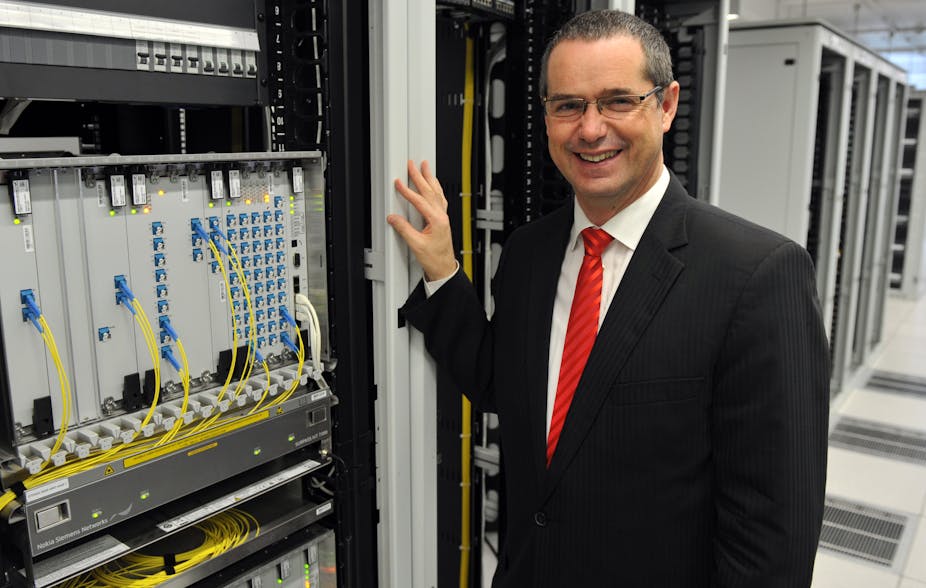Australian universities need to adapt their education models or face becoming irrelevant says Communications Minister Stephen Conroy.
Speaking at a forum being held at the University of Melbourne on high-speed broadband and higher education, Senator Conroy said universities could choose to adapt to the challenges and opportunities presented by ubiquitous high-speed broadband.
“This is a sector that has a choice, you can be a dinosaur, you can keep bellowing like some of our retailers, but there are new business models coming to challenge enormously in this sector.”
However University of New England vice-chancellor Jim Barber said there were specific government-induced problems at play in higher education.
Professor Barber said Australia is at risk of surrendering its education market to international online providers as a result of government regulation.
“Our regulatory environment is obstructing innovation in online delivery and therefore jeopardising the nation’s competitiveness,” Professor Barber said.
He cited numerous quality assurance standards universities were expected to comply with, forming what he called a quality framework “derived from dubious assumptions about how teaching should be performed”.
Professor Barber’s comments come as more universities around the world move to offer massive open online courses (MOOCs). University of Melbourne last week became the first Australian university to offer its courses with MOOC provider Coursera.
Professor Barber questioned the role of the many input standards that go to creating Australia’s education quality framework.
“Even if there is evidence for their association with student outcomes, who’s to say they are superior to the methods that are emerging in the new world of MOOCs, social networks and augmented reality?”
Professor Barber has called for a Bradley-type inquiry leading to federal government policy on the role of broadband in education.
Senator Conroy said the higher education sector needed to consider how its delivery model must change.
He agreed that ubiquitous high-speed broadband meant students, including children, could choose to learn anywhere they wanted.
“Where does that leave us? Can we have a unique Australian curriculum, any more than we can have a unique Victorian curriculum?
"It’s only taken us 112 years to get a national curriculum, I don’t think we’ve got 112 years to work out what we want to provide in the globalised digital education world.”
Senator Conroy warned that brand alone would not protect universities from the changes being driven by the digital revolution.
He said the shift in the balance of power between organisations and individuals was putting consumers, employees, citizens, patients and other individuals in the driver’s seat.
“The status quo is not an option for any part of the economy,” Senator Conroy said.
Professor Barber said “broadcast teaching” had been rendered obsolete, with online pedagogy heading towards user-generated information repositories like Wikipedia.
“Students today are demanding to be part of the educational process and they are blurring the acts of teaching and learning as a consequence,” he said.
Senator Conroy said in an environment where the marginal cost of providing a course online was zero, lecturers would question why they should be building their own lectures.
“Would it not be better to have lecturers spend more of their time facilitating collaborative learning and discussion amongst students?
"What is a lecture worth if the best lecturer in the world at MIT is online for free for all to access?”
Professor Barber said the answer lied in reconceptualising the approach to quality, taking online developments into account.
“Some of this work can be accomplished domestically but much of it requires multi-national regulation,” he said.
He added that as a matter of urgency the higher education sector needed to scour Australia’s Higher Education Standards Framework for obstacles to online learning and remove them.

